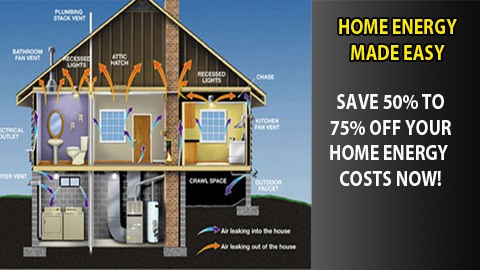
“In a nutshell, geothermal is the future of heating and cooling.”
Teo Blount

Benefits of Geothermal Energy Efficiency
As energy costs continue to rise, many homeowners are looking for ways to increase the efficiency of their homes. One option that is becoming increasingly popular is geothermal energy efficiency.
What is geothermal energy? Simply put, it is using the earth’s natural heat to provide heating, cooling, and hot water for your home. There are many benefits to this type of system, including decreased dependence on fossil fuels and lower utility bills. Here are six reasons why you should consider geothermal energy for your home: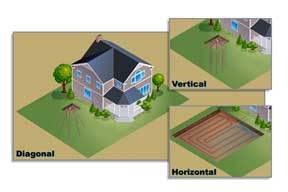
Geothermal energy is environmentally friendly
Geothermal energy is quickly becoming one of the greenest and most efficient sources of renewable energy. Geothermal energy is generated by the heat inside the Earth's core which can produce electricity. Its green qualities stem from its reduced emissions, low operating costs, and limited land usage - making it an attractive option for utilities who desire a sustainable source of power generation.
Not only is it environmentally friendly, but this green energy also offers a reliable source of power since geothermal plants have a higher return on investment than other green sources. Implementing geothermal energy into our society today can help ensure a greener and healthier tomorrow.
Geothermal systems do not produce greenhouse gases or other pollutants, making them a very environmentally friendly option for heating and cooling buildings.
Geothermal energy is efficient and can save you money
Geothermal energy is a great way to save money and be more efficient with your energy consumption. By digging deep underground, water can be heated by the natural geothermal heat from Earth's core and then circulated to a home or commercial building for heating and air conditioning.
This process uses significantly less energy than traditional heating and cooling sources, making it very cost-effective in the long run. Additionally, geothermal energy produces zero emissions, meaning it’s an eco-friendly way of conserving energy too. It thus serves as an excellent alternative to traditional sources of energy that are often not only costlier but worse for the environment.
Geothermal systems can be up to four times more efficient than traditional heating and cooling systems, such as furnaces and air conditioners. This means that less energy is required to heat and cool a building, which can lead to significant savings on energy bills.
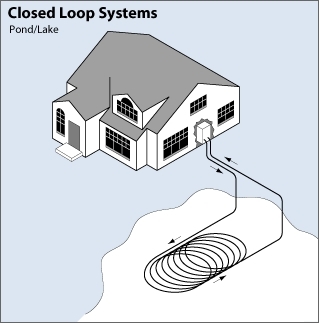
Geothermal energy is a renewable resource.
Geothermal energy is an important renewable resource. It is a form of clean energy that is generated from the natural heat of the earth’s surface. This energy can be used to generate electricity, as well as hot water or cooling systems in some cases. With its low emission levels and accessibility, geothermal energy has become one of the best forms of renewable energy being used today.
Moreover, with advances in drilling technology, geothermal power plants are becoming even more cost-effective for some countries and regions to build, making it an even more attractive solution for both individuals and businesses alike.
Geothermal energy comes from the heat of the earth, which is continuously replenished by the radioactive decay of minerals in the earth’s core. This makes geothermal an environmentally friendly and sustainable source of energy.
Geothermal energy can be used to heat and cool your home.
Geothermal energy is not only a sustainable and renewable source of energy but it can also be used to heat and cool your home! When installed correctly, geothermal systems are an efficient way to warm up or cool down your house. Unlike traditional air conditioning systems, geothermal systems don’t produce gas exhaust, which makes it good for the environment.
For homes that use geothermal systems to heat and cool, users will notice more consistent temperatures throughout their homes. Plus, depending on where they live in relation to the geothermal well supplying their home, users could save hundreds of dollars on energy bills by making the switch! Geothermal energy promises higher efficiency and cost savings for homeowners for years to come.
Geothermal systems do not rely on external factors, such as weather conditions, to function properly. This makes them a very reliable source of energy that can be used to heat and cool a building even in the most extreme conditions.
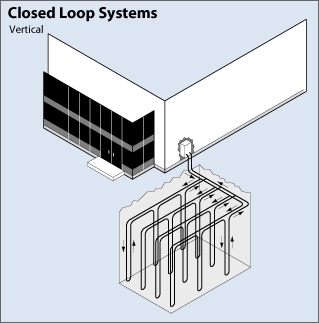
Geothermal energy is low maintenance.
Geothermal energy is an increasingly popular source of renewable energy. This is because it is relatively low maintenance, easy to obtain, and infinitely renewable. As opposed to other forms of energy production and storage, geothermal energy requires little effort to maintain; once a well-created system is in place, it can operate with no additional effort.
Not only does this benefit the environment by relying on a sustainable energy source, but it also saves money for the consumer by avoiding costly upkeep and maintenance fees that can often come with other renewable sources such as solar or wind power. All in all, the cost-effectiveness and sustainability of geothermal energy make it a viable option for those looking for cleaner, more reliable sources of power.
Geothermal energy is safe
Geothermal energy is increasingly becoming an attractive source of renewable energy for many countries. It is reliable, efficient, cost-effective, and most importantly, safe. This renewable energy source harnesses thermal energy found beneath the earth's surface to generate electricity without any harmful pollution or contamination to the environment.
Moreover, geothermal reservoirs are not exhausted by use since they are replenished naturally with rainfall and runoff water into surrounding aquifers — making it a sustainable choice for the future. Geothermal energy also benefits from being virtually inexhaustible and can produce clean power around the clock, ensuring security and reliability in the energy supply. As such, geothermal energy makes a great sustainable alternative that is both safe and reliable for power generation today and in the future.
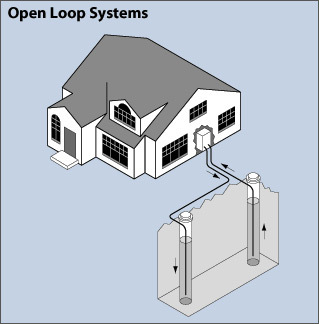
Disadvantages of Geothermal Energy
Limited Locations
Geothermal energy is only available in certain locations. In order for a geothermal power plant to be built, there must be a heat source close to the surface of the earth. These heat sources are typically found in areas where there is volcanic activity or hot springs. As a result, geothermal power plants can only be built in a limited number of locations around the world.
High Upfront Costs
Another disadvantage of geothermal energy is that the upfront costs can be quite high. The drilling and construction of a geothermal power plant can be expensive, and it can take several years for the plant to become operational. As a result, geothermal energy may not be a viable option for countries or regions with limited financial resources.
One of the primary disadvantages of geothermal energy is that it can be quite expensive to install. A geothermal heating and cooling system can cost upwards of $20,000, which is much more than a traditional HVAC system. Additionally, the installation process can be quite complex and time-consuming, which can add to the overall cost.
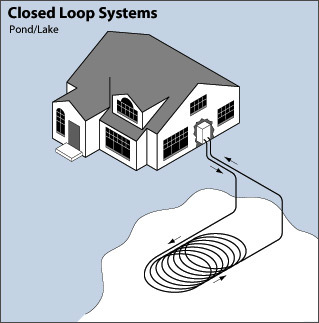
Environmental Impact
While geothermal energy is considered to be a clean and renewable resource, there are some potential environmental impacts associated with its use. For example, the drilling process can release harmful chemicals into the air and water, and the noise from the pumps can disturb wildlife.
Additionally, if not properly managed, geothermal power plants can release large amounts of carbon dioxide and other greenhouse gases into the atmosphere.Geothermal power plants can have a negative impact on the environment.
The drilling process can release harmful chemicals into the air and water, and the power plants themselves can produce emissions that pollute the air. Additionally, geothermal power plants require a large amount of land, which can lead to deforestation and habitat loss.
Limited Potential
Although geothermal energy has many benefits, its potential is limited. Geothermal power plants can only generate a small amount of electricity, and they are not able to meet the demand of large cities or industrialized nations. Additionally, geothermal power plants have a relatively small capacity factor, meaning that they are not operational for long periods of time each day.
Another disadvantage of geothermal energy is that it requires water in order to operate. The water is used to cool the steam that powers the turbines in a geothermal power plant. This means that if there is a drought in an area where a geothermal power plant is located, it may have to shut down due to lack of water
Conclusion
In conclusion, geothermal energy efficiency is a fantastic way to promote a greener lifestyle as it is not just environmentally friendly, but also efficient and renewable. With the ability to save money on energy bills as well as provide low-maintenance and safe heating and cooling for your home, there’s no better time to consider making the switch than today. Geothermal energy has been around for centuries and continues to impress with its modern-day applications. So don't be afraid to look further into what geothermal energy can do for you – it might just surprise you!

